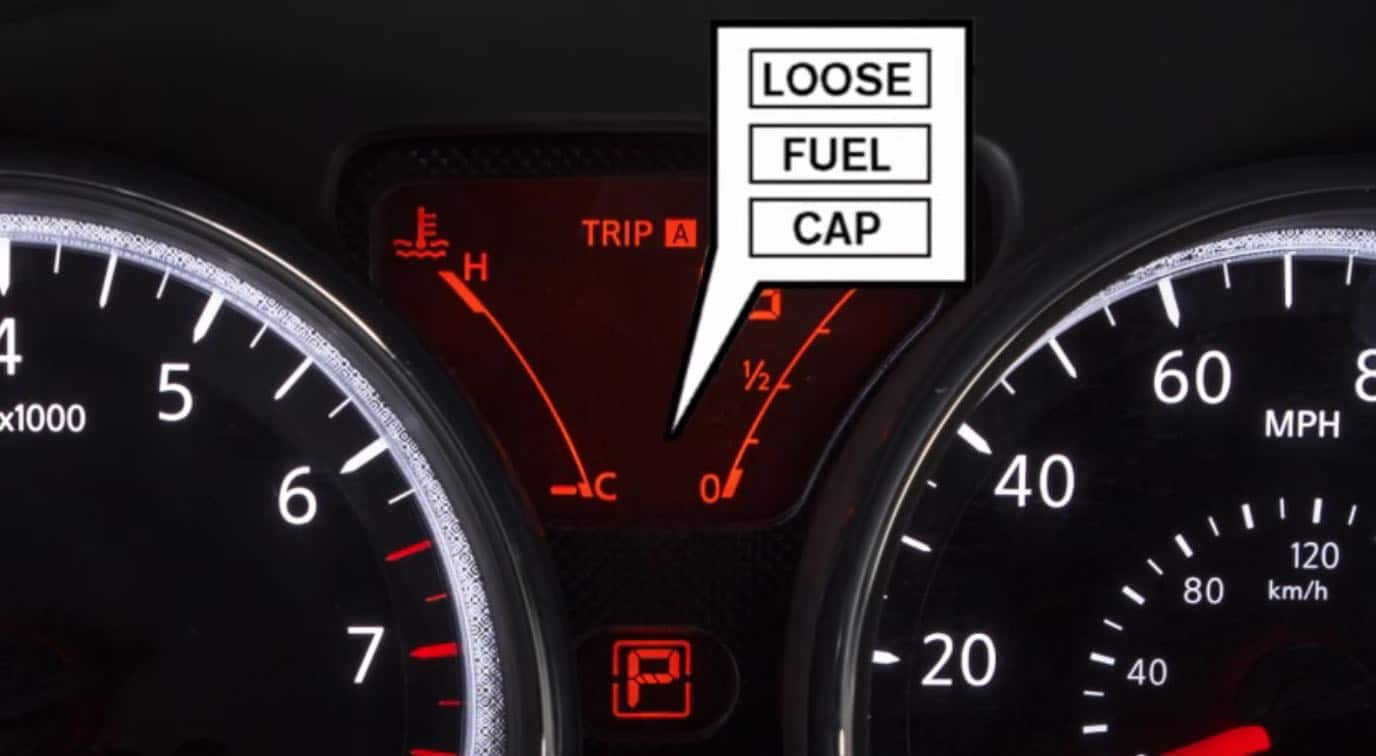This guide will help you determine why you are getting the LOOSE FUEL CAP message in your Nissan, and how to correct it.
What Does Loose Fuel Cap Mean?
It means that the fuel cap is either loose or broken.
Your Nissan made vehicle is equipped with a warning system that will inform you if the gas cap is loose. It can and will also come on if there is something wrong with the gas cap itself as well. When this happens, you’ll see a message by the odometer that says LOOSE FUEL CAP.
It won’t necessarily come on the moment that you start the car with the fuel cap on loose. It’ll take it a while to “figure out” that the cap is loose.
Loose Gas Cap Symptoms
- Smell of Fuel– You may notice the smell of gas. Your Nissan can lose over 2 gallons of gasoline a month with a bad fuel cap.
- Cap Doesn’t Click– When you close your Nissan’s fuel cap, there should be a satisfying click. If that click is gone, the cap needs replacing.
- Check Engine Light– The fuel cap is part of the evaporative emissions control system. The EVAP systems job is to send the fuel vapor to the engine to be burned off. When there is a failing in this system (including the gas cap) the check engine light will come on with an EVAP related code stuck in its memory (such as P0457 EVAP System Leak).
How to Reset LOOSE FUEL CAP Warning
- Remove the fuel cap.
- If it felt like it was snug when you took it off, check to see if the rubber O ring that goes around the inside of the gas cap is intact. If it is missing, looks dry rotted, or damaged, you’ll need to replace it. Check for damage or debris anywhere around the fuel filler neck. If anything looks off, replace the cap.
- Tighten the fuel cap until it clicks.
- Press the reset button for a second to turn off the warning.
If the warning comes right back, it may be time to get a new fuel cap. Otherwise it’s a pretty good indication that there is an EVAP system leak.
Is It Safe To Drive With a Loose Fuel Cap
It’s completely safe to drive with a LOOSE FUEL CAP warning, or an actual loose fuel cap.
There’s something called a flapper valve built into the filler neck. You’ve probably seen it when gassing up. The gas pump pushes it in. When you aren’t filling up, the flapper valve acts as a fail safe that keeps the gas from splashing out of the car.
Driving with a loose gas cap does no damage to the engine, or fuel system. The only thing that you may notice is the slight smell of fuel vapor. Just because it’s not dangerous, doesn’t mean that you shouldn’t replace the cap as soon as you can though. Without the gas cap tightened (or replaced if needed), the fuel system is likely to throw an EVAP related trouble code.
Can a Loose Gas Cap Cause Problems?
While it doesn’t make driving your Nissan more dangerous, a loose fuel cap does let gasoline evaporate into the atmosphere. For every month that you drive with a bad gas cap, you’ll lose about 2.5 gallons of fuel.

